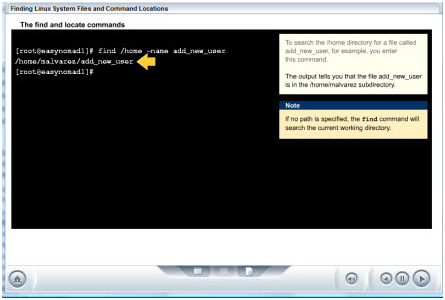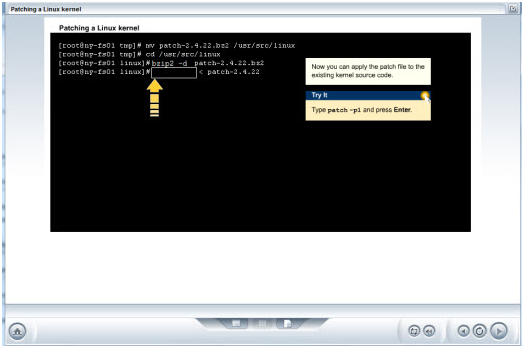"Linux training and certification are critical to developing skilled Linux systems administrators and building a strong and vibrant Linux ecosystem. LPI performs a key role through its vendor- neutral training approach, and the success of LPI is shown by it reaching the milestone of 100,000 exams..."
A widely-recognized Linux certification ensures that IT professionals have a means of demonstrating their Linux skills to potential employers while assuring customers that they are receiving knowledgable support.
The easiest way to gain corporate, governmental, and institutional support and usage of Linux is to ensure that there is a recognized support system in place. This includes professionally accredited support services and an industry recognized skills standard.
 LPI Certification Course includes LPI Certification Course includes
- Twenty Five hours of full multi-media interactive training.
- Hands-on Labs - a perfectly simulated, real-world environment to test skills without risk.
- Engaging course demos and real-world examples
- Practice Exams - Simulated certification exams designed to validate exam readiness. Based on availability.
- Online Mentoring 24 7
Mentoring provides personal access to our talented corps of expert instructors in a unique collaborative environment. Students can correspond with the Instructor Team 24x7.
- Covers 101, 102, 201, 202 Courses
Live Boot Camp Classes Nationally for LPI Certification
Training Contains the Following Content
LPIC Exam 101
Using the Linux Shell
Redirection Approaches and Process Control
Managing and Processing Text
Managing Files
Mounting and Managing File Systems
Partitions, File Systems, and Disk Quotas
Hardware Requirements
Hardware Configurations
Installing Linux
Managing Debian and Red Hat Packages
Administering the X Window System
LPIC Exam 102
The Kernel
Writing Shell Scripts
Administrative and Documentation Tasks
Managing Linux Group and User accounts
Administering System Tasks and Backup Strategies
Networking Fundamentals
Networking Services
Working with Sendmail and Apache
Security Environment
Printing
Data Management, Localization, and Encryption
Mail Transfer Agents and Accessibility
Intermediate System Administration
Kernel Compilation and System Startup
Filesystem Management and File Sharing
Networking Configuration
Networking Services
Hardware Configuration and System Maintenance
Security in the Linux Environment
System Customization and Automation
Troubleshooting
 LPIC Advanced Level Professional Exam 201 and 202 LPIC Advanced Level Professional Exam 201 and 202
User Notification and Device Management
E-mail and Security
Kernel Compilation
File Sharing and Filesystem Management
Network Configuration
Network Services
System Maintenance and Hardware Configuration
Security
System Troubleshooting |












 LPIC Advanced Level Professional Exam 201 and 202
LPIC Advanced Level Professional Exam 201 and 202 